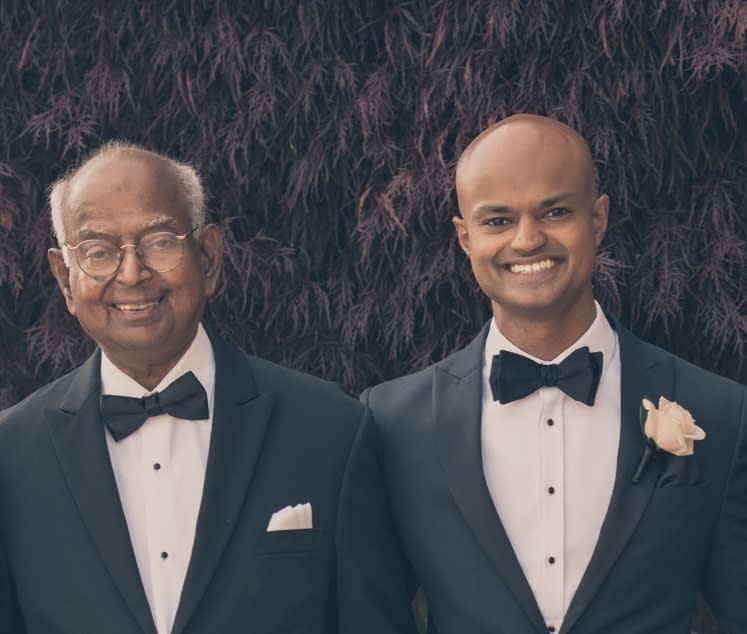Dr. Hari Vasan is the Hospital Donation Physician and Medical Director of the Critical Care Response Team for Niagara Health, published in the St. Catharines Standard, Niagara Falls Review and Welland Tribune.

When we got the phone call from the hospital telling us that a kidney donor had been found for my father, it was a life-changing event. It meant he would no longer need to be on dialysis so he’d have more time for work, family and himself. The donor passed away but from this tragedy emerged an incalculable gift.
That event inspired me to become a physician - to be able to help people in times of need and to help those manage tragedy with dignity. Here at Niagara Health, we are fortunate to help those who wish to donate their organs or tissue to those who desperately need them. Working with the provincial Trillium Gift of Life organization, in 2022-2023 we helped 16 people who wished to become organ donors and 97 people who gave the gift of tissues. These accomplishments are significant and yet more work needs to be done.
Currently in Ontario there are 1,318 people waiting for a life-saving organ transplant. Organs and tissue that can be donated include the heart, kidneys, liver, lungs, pancreas, small intestines, eyes, bone, skin and heart valves. One person can save the lives of up to eight people through organ donation and enhance the lives of up to 75 people through tissue donation. Over 90% of Ontarians support organ and tissue donation, and every major religion supports it. And yet, only 35% of people are registered. There are many reasons for this disparity but overcoming it simply requires more people to discuss it with their families and to take two minutes to go to www.beadonor.ca to register.
Organ and tissue donation can be a topic filled with questions and misconceptions. Fortunately, many answers are readily available on the Gift of Life website. For example, everyone is a potential donor, regardless of age or medical condition. It's also worth noting that open casket viewing is still possible after organ donation. Even if you're unable to donate blood, you can still be an organ donor. While the old donor cards are no longer in use, you can easily register online. With the ability to provide life-saving help to those in need, there's simply no reason not to register as a donor. For more FAQs about organ and tissue donation, visit https://www.giftoflife.on.ca/en/faq.htm.
As a physician in Critical Care, I often see the sadness that can result from a tragic death. Often times the only tangible good that results, apart from the fond memories of the deceased, is the donation of organs and tissue to help those in need. Indeed, many families of those who have passed away without donating have later expressed regret that they did not pursue organ donation as a means to not only help those in need but to carry on the memory of the deceased. If you would like to be a donor, I encourage you to talk to your family and register. It may be one of the greatest gifts you ever give.

